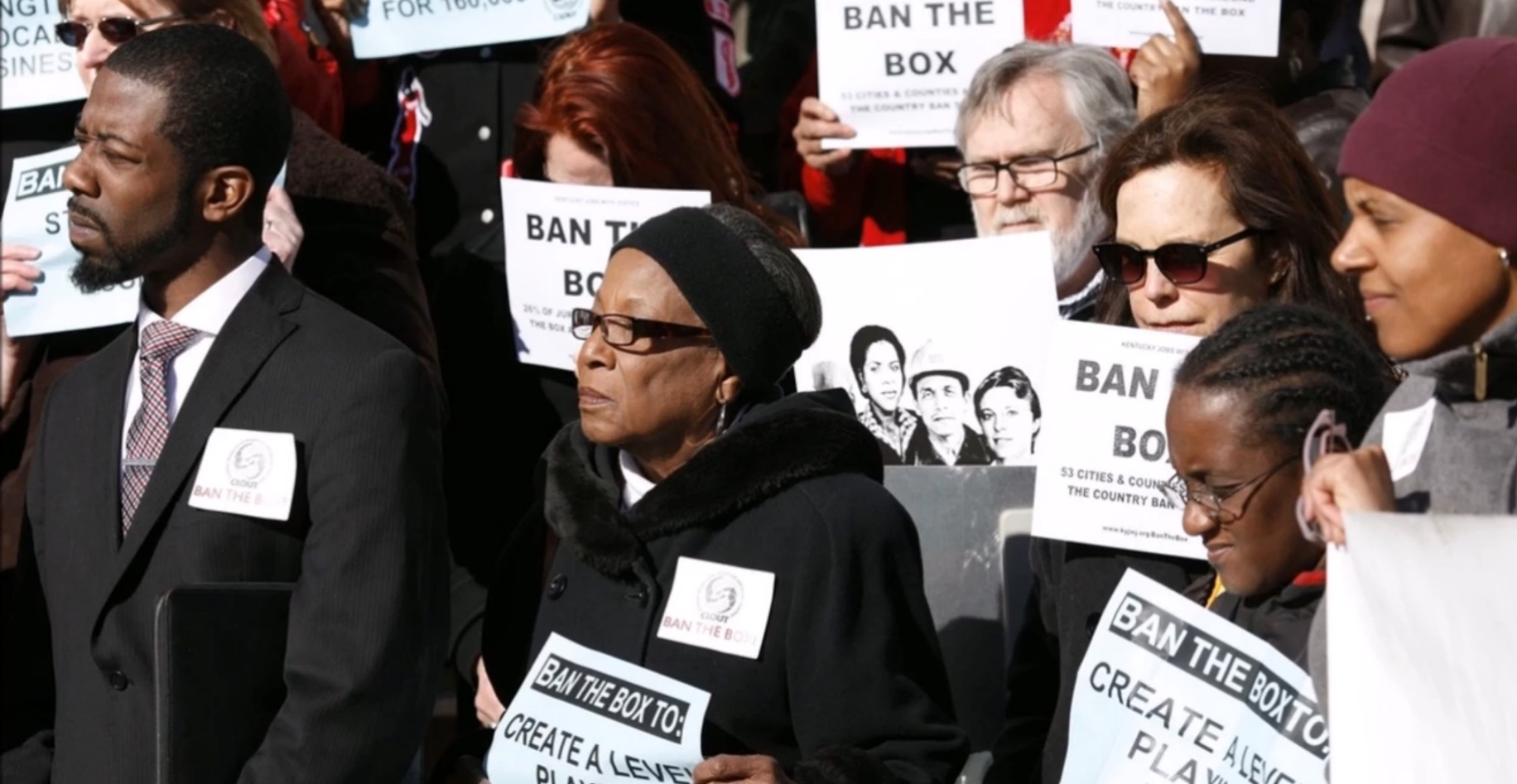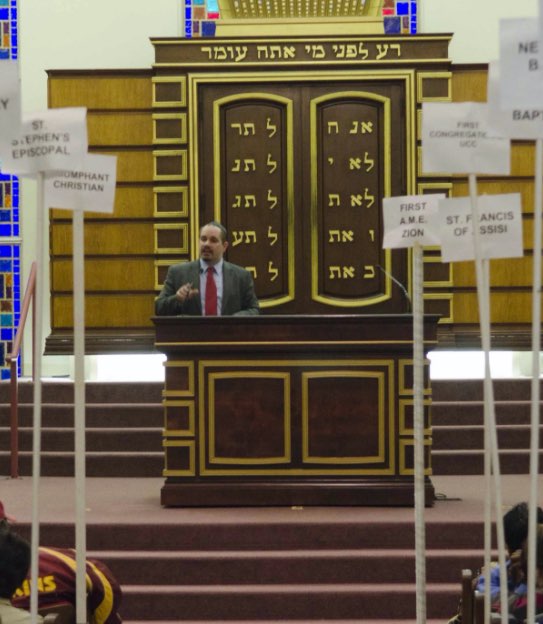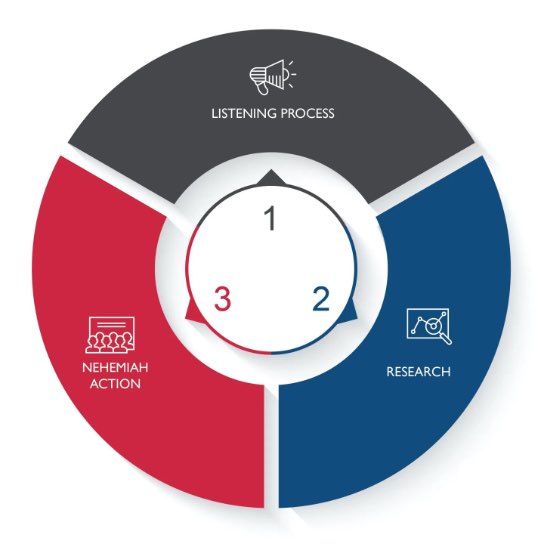No. All organizations in the DART Network are politically non-partisan.
We believe in the power of organized people
Our network of 31 grassroots organizations brings people together across racial, religious, and socioeconomic lines to pursue justice.
Our mission
DART’s mission is to engage congregations in doing justice
Rooted in diverse faith traditions, our members find common ground in values of justice and fairness. We train community leaders and professional organizers to build power and take direct action on problems facing their communities, so that all people are treated with the respect and dignity that our faith traditions tell us they deserve.
While direct-service organizations work to address peoples’ immediate needs, we train everyday people to speak on their own behalf and build the power needed to change local systems that are upholding injustices.
Our Role
To help local organizations build people power and impact serious community problems, DART provides the following to our local affiliates:
- Guidance on starting up a new organization
- Ongoing consulting on power building, issue campaigns, fundraising, listening processes, and negotiations
- Recruitment of professional organizing staff
- Intensive training for new organizers through the Organizer’s Institute
- Three annual organizer trainings to continually build the skills and capabilities of professional organizing staff
- Planning and developing regional, national, and virtual trainings for local clergy and lay leaders

Core Values
Four core values unite the clergy, lay leaders, and organizers who fight for justice across the DART network
1. We believe in the scriptural story of justice.
Across faith traditions, scripture lays out a story of abundance, love, hope, promise, and community. In this story, loving God and your neighbor as yourself gives life meaning. We believe that fighting for justice is fundamental to our identity as people of faith.
2. We stand over and against the “cult of money.”
The cult of money uses consumer culture to promote stories of scarcity, hate, fear, despair, and individualism.
3. We need the power of organized people to win justice (Nehemiah 5).
Through direct action, organized people from a cross section of faith traditions publicly hold decision-makers accountable on justice issues that affect their communities. We support one another in this struggle for justice.
4. We embrace high standards and rigorous accountability because our task is so important.
We conduct evaluations to achieve understanding, not to assign blame. Each of us celebrates when another succeeds. We embrace pragmatic, not dogmatic solutions. We are in this work for the long haul.
Our process
Our local affiliates uncover, research, and take direct action on community problems using a straightforward process
Our history
Doing justice since 1982
DART continues to expand to new locations and seeks passionate, driven people to contribute to our mission and history, like so many have in the past.
For clergy
Involve your congregation

DART acts with the understanding that people of faith are called to do justice, but often lack an effective vehicle to do so. We seek to stand in this gap and invite you to join us.
Generally a new DART affiliate begins with a group of clergy who invite DART’s national staff to assist them in building an organization. This “invitation-first” policy promises community ownership for the organization from the beginning. Also, DART does not seek to build organizations in cities where a similar organization exists.
If you are a clergy person interested in starting a DART organization in your community, please contact John Aeschbury at jaeschbury@thedartcenter.org.
FAQ
Frequently asked questions
What is DART?
DART is a national network of congregation-based community organizations spread throughout thirty-one metropolitan areas in ten states. Each local organization is an independent, 501 c (3) nonprofit with its own unique name, funding, and staff. Each organization follows DART’s method of organizing, but determine their own issues and solutions locally. Their organizers are trained through the DART Organizers Institute and receive on-going training from DART’s national staff.
What does the acronym DART stand for?
The Direct Action and Research Training Center
Why does DART work primarily with congregations?
We believe that God requires us to do justice as an act of faith in the same way we are expected to assist an individual in need or come together for worship, prayer, and study. Unfortunately, congregations often ignore the requirement to do justice by focusing on worship and service to individuals. DART’s mission is to train congregations to come together and answer the call to do justice successfully. Individuals, families, and single congregations are incapable of answering this call because when acting alone, they are powerless in relation to the political, social, and economic systems in their community. But when congregations work together in large numbers, they acquire the power to hold systems accountable.
What kinds of congregations get involved with DART?
The membership among local DART organizations is interfaith and represents Christian, Jewish, Muslim, and other congregations with a shared value for justice and fairness.
How do DART organizations choose the issues they will work on?
DART organizations conduct a formal listening process each year involving hundreds of people discussing the problems that affect their lives or offend their sense of justice. This process typically raises a litany of different issues. Next, the organization holds an assembly where leaders vote and narrow the list down to 1-3 problems of greatest importance. Once the problem areas are selected, the organization conducts research to determine viable solutions that will have a lasting impact. During the research phase, leaders identify issues/solutions that are popular (engaging and impactful), winnable (not outside the ability of the organization to achieve), and unifying (not divisive).
How are DART organizations funded?
To retain independence and to ensure long-term sustainability, DART organizations concentrate on raising our own money internally. The three basic sources of funding for a local DART affiliate include: congregational dues, an annual Investment Drive, and foundations. First, to be a member, a congregation must pay dues on a sliding scale related to their size. Second, every DART organization conducts a two-month annual Investment Drive. During this period, we train leaders from participating congregations to approach individuals and major companies in the region to tell the story of their work and to seek investment. The long-term goal of the Investment Drive is to raise enough money to support a growing staff of professional organizers through large numbers of people investing at moderate amounts (i.e., typically around $200). Third, private and religious foundations often support the initial stages of a new organization in the form of seed money. When considering money, it’s important to note that DART related organizations do not accept government funding and limit the amount that any one corporation can invest.
How does a DART organization get started?
Generally a new DART affiliate begins with a group of clergy who invite DART’s national staff to assist them in building an organization. This “invitation-first” policy promises community ownership for the organization from the beginning. Also, DART does not seek to build organizations in cities where a similar organization exists. If you are a clergy person interested in starting a DART-affiliated organization in your community, please contact John Aeschbury at jaeschbury@thedartcenter.org.
Who are the leaders of DART organizations?
Each local DART organization is led by 400 – 750 unpaid religious and community leaders serving on governing boards and/or acting within their congregations as part of a Justice Ministry Network. These leaders articulate community needs during formal listening processes, vote on the problems the organization will act on, participate in research, inform and enroll others to act together at public meetings, and sustain the organization financially. They are highly diverse representing different political, racial, ethnic, religious, and economic backgrounds. They come together to work toward pragmatic solutions focused on the common good.
What is Direct Action?
A Direct Action is a public meeting in which large numbers of organized people show their support for solutions to serious community problems. They will also negotiate face-to-face with authorities in this public setting to implement specific solutions that will have a positive, long-term impact on the community. This large public meeting is also known as a “Nehemiah Assembly” as inspired by the fifth chapter of the book of Nehemiah.
